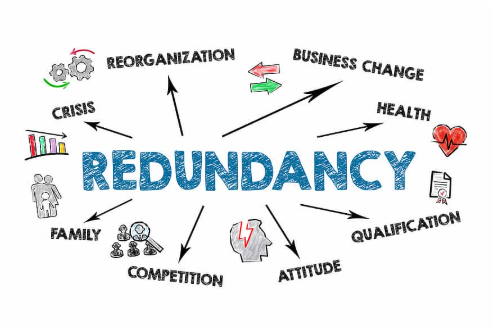Facing redundancy can be one of the most challenging experiences in a person’s career. Whether it comes as a shock or is anticipated, understanding the implications is vital for navigating this uncertain territory. Ireland’s employment landscape has its own set of rules and protections when it comes to redundancy, but many employees are left feeling confused about their entitlements and rights.
If you’re seeking clarity on redundancy processes, payments, or alternative options available to you in Ireland, you’ve come to the right place. Our comprehensive guide aims to unravel all aspects of redundancy so that you can approach your situation with confidence and informed decision-making.
Let’s dive into what redundancy means and how it affects employees in Ireland today!
What is Redundancy?
Redundancy occurs when an employer needs to reduce their workforce. This can happen for various reasons, such as financial constraints, restructuring, or the introduction of new technology that makes certain roles obsolete.
It’s important to note that redundancy is not a reflection of an employee’s performance. Instead, it focuses on the job itself and its continuing necessity within the company.
In Ireland, redundancy situations are governed by specific laws designed to protect employees’ rights. Understanding these regulations helps those affected navigate this challenging time more effectively.
Being informed about what constitutes redundancy sets the foundation for knowing your entitlements and next steps during this transition phase in your career.
Redundancy Process in Ireland
The redundancy process in Ireland begins with a clear notification. Employers must inform employees of potential redundancies and the reasons behind them. This often involves meetings that provide transparency about the situation.
Next, a selection criterion may be established to determine which roles will be made redundant. This needs to be fair and non-discriminatory, adhering to guidelines set out in employment law.
Once decisions are made, employers are required to issue formal notices. A minimum notice period is typically mandated based on how long an employee has been working for the company.
Before any layoffs occur, employers should explore alternatives such as redeployment or voluntary redundancy packages. Engaging with staff during this phase can foster goodwill and understanding amidst challenging circumstances.
It’s crucial for both parties to keep communication lines open throughout this stressful time.
Entitlements for Redundant Employees
When facing redundancy, employees in Ireland have specific entitlements designed to support them during this challenging time. One of the primary rights is statutory redundancy pay, which is calculated based on your age and length of service.
For every complete year worked, those under 22 receive a week’s pay; ages 22-40 get one-and-a-half weeks; while workers over 41 earn two weeks’ pay per year. It’s essential to know that this payment is capped at a certain weekly maximum.
In addition to statutory payments, some employers may offer ex gratia payments as an incentive for resignations or layoffs. These payments are not legally required but can significantly enhance financial security during unemployment.
Employees should also be aware of their entitlement to unpaid holiday leave accrued before redundancy. Understanding these benefits ensures you make informed decisions about your future after leaving employment.
Enquire with Money Maximising Advisors now to plan your next steps and secure your financial future.
Impact of Redundancy on Employees
Redundancy can bring about significant emotional and psychological challenges for employees. The sudden loss of a job often leads to feelings of uncertainty and anxiety. Many individuals grapple with self-doubt and fear regarding their future career prospects.
Financial stress is another critical aspect that cannot be overlooked. Losing a regular income disrupts personal budgets, making it difficult for families to meet monthly expenses. This financial strain can escalate tensions at home, leading to further emotional distress.
Social connections within the workplace are also disrupted. Colleagues may feel isolated after redundancy, missing daily interactions that once provided camaraderie and support.
Moreover, the stigma associated with being made redundant can affect one’s confidence in seeking new opportunities. Rebuilding a professional identity takes time and effort, which adds another layer of difficulty during this transitional period in life.
Legal Rights and Protections for Redundant Employees
Navigating redundancy can be daunting, but employees in Ireland have specific legal rights to protect them during this challenging time.
The Employment Rights Acts safeguard against unfair dismissal. Employers must follow a fair process when selecting individuals for redundancy. This includes consultation and providing clear reasons.
Employees are also entitled to statutory redundancy payments, which are calculated based on age and length of service. Understanding these calculations is vital; many use a redundancy calculator to determine their entitlements accurately.
Moreover, workers should not face discrimination during the selection process. Any bias based on gender, age or other protected characteristics could lead to claims against employers.
Employees need to know they can seek advice from Money Maximising Advisors or legal professionals if they feel their rights haven’t been respected. Staying informed empowers those affected by redundancy to advocate for themselves effectively.
Alternative Options for Those Facing Redundancy
Facing redundancy can be daunting, but there are alternative options to consider before making any rash decisions.
Explore opportunities for redeployment within your current organisation. Many companies prefer to retain talent rather than lose it altogether.
Another avenue is pursuing further education or training. Upskilling can enhance your employability and open doors to new career paths you may not have considered.
Freelancing or starting a business might also appeal to those with an entrepreneurial spirit. The gig economy offers flexibility and the chance to leverage existing skills in new ways.
Networking plays a crucial role during this time, too. Reach out to former colleagues and industry contacts who may know of job openings that align with your experience.
Consider consulting financial advisors like Money Maximising Advisors specialising in redundancy advice Ireland. They can provide insights into managing benefits like statutory redundancy pay in Ireland effectively while navigating this transitional phase.
FAQ’s:
What qualifies as a valid reason for redundancy in Ireland?
Generally, businesses may cite financial difficulties or restructuring as acceptable reasons.
How much statutory redundancy pay am I entitled to?
Typically, employees receive two weeks’ pay for every year of service, plus an additional week’s pay, subject to limits.
Can I appeal my redundancy decision?
Yes, if you believe the process was unfair or improperly handled, you can appeal within your organisation. If not resolved internally, consider seeking advice from employment agencies.
Are there tax implications for my redundancy payments Ireland?
Certain portions of your payment might be exempt from tax under specific conditions. It’s wise to consult a specialist in Redundancy Tax Ireland for clarification.
Is an Ex Gratia Payment different from statutory payments?
Yes, Ex Gratia Payments Ireland are discretionary and typically provided by employers beyond the legal minimum entitlements.
Conclusion
Redundancy can be a challenging experience for employees in Ireland. Understanding the process and entitlements associated with redundancy is crucial for navigating this difficult time. From statutory payments to potential ex gratia options, knowing your rights can empower you to make informed decisions.
Employees facing redundancy should also explore alternative options available to them, including retraining or seeking new employment opportunities. The support of Money Maximising Advisors can provide valuable guidance during this transition.
Staying aware of your legal rights ensures that you are treated fairly throughout the redundancy process. Familiarising yourself with how redundancy impacts both personal finances and emotional well-being will enable a smoother adjustment to life after job loss.
Call Money Maximising Advisors today to understand your redundancy rights and maximise your entitlements.
Related Articles [Click now 👇]
- Redundancy Advice Ireland: What is the average redundancy package in Ireland?
- What is the Difference Between Redundancy and Termination?
- How to Navigate Redundancy: A Step-by-Step Guide for Dublin Workers
- Voluntary vs. Compulsory Redundancy: Key Differences in Ireland
- Redundancy Payment Entitlements in Ireland: What You Need to Know
- Seeking Redundancy Advice in Ireland: Top Resources and Support Services
- The Impact of Redundancy on Pensions in Ireland: What You Should Consider
- Redundancy Advice Dublin, Ireland: How do I Get Advice on Redundancy?










